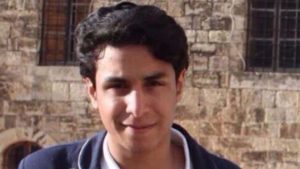State lawmakers start to heed brain development studies
by Tresa Baldas
Source: http://www.law.com/jsp/article.jsp?id=1202446216111&More_States_Rethinking_Life_Sentences_for_Teens
The National Law Journal
Their lawyers have long urged juries to give juvenile defendants a second chance. Now a growing number of states are rethinking the wisdom of sentencing teenagers to life in prison.
Two states have recently passed — and at least 11 states are considering — legislation that would end life sentences for those under 18 years old or, more generally, restrict charging juveniles as adults.
The U.S. Supreme Court will also have something to say on the issue. In two Florida cases argued in November, the high court is considering whether a life sentence without parole for juveniles who have committed crimes other than murder violates the U.S. Constitution’s prohibition on cruel and unusual punishment.
But state lawmakers are not waiting to hear the justices’ opinion. Although efforts to abolish juvenile-lifer laws are nothing new, the legislators’ willingness to side with criminal defense lawyers against prosecutors is a change. And a key reason appears to be new scientific evidence that adolescents are simply not capable of weighing their actions like adults.
“We believe that kids should be rehabilitated instead of throwing the key away.…[A]nd legislators across the country are starting to see that,” said Eric Solomon, a spokesman for the Campaign for Youth Justice, which pushes to rewrite juvenile justice laws across the country. Among other tactics, the group asks parents of teenagers who have served time in adult prisons or jails — including some who have committed suicide behind bars — to lobby their state lawmakers. Or, as Solomon put it, to “fire everyone up.”
According to the Campaign for Youth Justice, an estimated 200,000 youth are tried, sentenced or incarcerated as adults every year in the United States. There are 45 states that give juvenile court judges the discretion to transfer a case to adult court, 15 states that give prosecutors the discretion to try a youth as an adult and 15 states that require juvenile court judges to transfer a case to adult court for certain offenses, based on the offender’s age or prior record.
Juvenile justice reform advocates are bombarding lawmakers with evidence from a growing body of research on brain development that has found teens don’t make decisions like adults. Although they have the intellectual capacity to understand long-term consequences, adolescents often lack the maturity — or, rather, their brains lack the impulse control — to consider those consequences before acting. And despite their veneer of independence, teens are more susceptible to peer pressure than adults.
Prosecutors are not buying the argument. The juvenile crusaders are painting a false picture of those adolescents who receive life sentences, said James Reams, president-elect of the National District Attorneys Association. It’s not the “kids selling pot” and other petty criminals, but those committing heinous crimes such as thrill-kill murders or “pretty horrific” rapes.
Teens put away for life are those whom “the juvenile system is giving up on,” said Reams.
NOT YET ADULTS
Despite prosecutors’ opposition, several states have recently increased juvenile protections. Texas this past fall joined six other states in banning life sentences without parole for juveniles.
Connecticut’s new law, which took effect in January, ends automatic prosecution of 16- and 17-year-olds as adults. Now the 16-year-olds start in juvenile court, and judges in felony matters decide case by case whether to send the juvenile to adult court. The law extends to 17-year-olds by 2012.
A slew of similar proposals have popped up elsewhere. Colorado is considering legislation that would strip prosecutors of the power to send juveniles into the adult system without a judicial oversight or fitness hearing.
Michigan, which has 352 prisoners serving mandatory life sentences for crimes committed while they were juveniles — the second-highest number after Pennsylvania, which has 444 — is considering abolishing juvenile life-without-parole sentences.
North Carolina has a task force looking at raising the age at which a teenager can be tried as an adult. North Carolina and New York are now the only two states that automatically try 16- and 17-year-olds as adults, regardless of the crime.
Meanwhile, at the Supreme Court, two men hope to extend a line of reasoning the justices began in Roper v. Simmons (2005), which held that the Eighth Amendment prohibits the execution of minors. In Roper, the Court stressed that minors are less culpable than adults as well as less susceptible to deterrence.
The same reasoning should cover their cases, argue the defendants in Graham v. Florida and Sullivan v. Florida. Terrance Graham is serving life without parole for an armed robbery he committed at age 17. Joe Sullivan is serving life without parole for beating and raping an elderly woman when he was 13.
The idea that juveniles are not as responsible for their actions as adults has also garnered the support of the American Bar Association, the American Medical Association and the American Psychological Association, which all filed amicus briefs in support of the Florida defendants at the Supreme Court.
‘THE ABSOLUTE WORST’
Efforts to declare juveniles off-limits to adult justice are unnerving prosecutors, said Reams of the National District Attorneys Association. “There’s been talk about what we should do about juvenile killers. That’s been a huge issue that’s being debated around some states and at our board meetings,” he said.
Palm Beach County prosecutor Michael McAuliffe pointed to a recent infamous trial in West Palm Beach, Fla., in which three juveniles, including a 14-year-old and a 15-year-old, were charged as adults for brutalizing a mother and her 12-year-old son in a public housing complex. The mother was raped and sodomized for hours at gunpoint; she and her son were forced to engage in a sex act; and both were beaten. In October, the 15-year-old was sentenced to life without parole; the 14-year-old was sentenced to 30 years.
“There are certain acts by their very nature that call out for an adult charge,” McAuliffe said. “There’s no glee to this process.…But it’s a necessary part of the criminal justice system.”
And it should stay that way, said James Fox, the district attorney in San Mateo County, Calif., and past president of the National District Attorneys Association. His office is currently prosecuting a 14-year-old charged with first-degree murder for a gang-style execution. Fox wants to give him the maximum sentence: 40 years to life.
“He has not shown any remorse. And we believe that he constitutes a danger and will for a significant period of time,” Fox said.
The case comes as lawmakers in California are considering a bill that would end juvenile life sentences. Fox said state prosecutors would lobby against the legislation should it gain traction, but he thinks it hasn’t.
Not so in Michigan, where the proposed juvenile justice reforms have prompted Wayne County Prosecutor Kym Worthy and members of her office to testify before state legislators several times. Prosecutors, she said, must be allowed to treat adolescents accused of violent crimes as adults because justice demands it. “These are the worst of the absolute worst,” she said, adding that prosecutors “really agonize” over charging them as adults.
SHORT-TERM THINKING
Defense lawyers respond that, bad as the crime may look to adults, the adolescent offender didn’t see it the same way.
Robert Lindemeier, a public defender and a partner at Lindemeier, Gillett, Dawson & Troshynski in North Platte, Neb., has represented three juveniles in first-degree murder cases, including Darren McCracken. Dubbed Nebraska’s youngest lifer, McCracken was just 13 when he put a pillow over his mother’s head and shot her to death. According to one psychologist, he killed her because he planned to run away from home to escape long-term abuse and wanted to spare her pain. He confessed and is now serving a life sentence for the 1993 killing.
Lindemeier, who represented the boy in post-conviction hearings, believes that McCracken was wrongfully held to adult standards of culpability. He said that the adolescent brain development studies were not available at the time of McCracken’s trial or post-conviction proceedings.
More than a decade later, another one of Lindemeier’s teenage clients, Alisha Ochoa, met a different fate. In 2008, the 15-year-old girl was charged with murder for standing by while her boyfriend killed her mother and sister. She faced life in prison. But a psychologist, relying on brain development studies, told the jury that teenagers don’t think through the risks of certain behaviors, Lindemeier said. Ochoa was acquitted this past March.
“This isn’t voodoo science,” Lindemeier said. He is hopeful that Nebraska lawmakers will agree and do away with sentencing minors to life without parole. Nebraska is considering such legislation.



